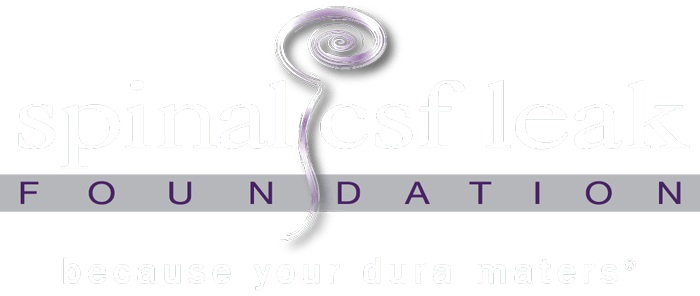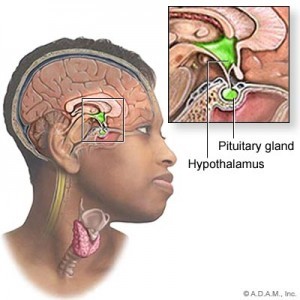NEUROENDOCRINE COMPLICATIONS from low cerebrospinal fluid (CSF) volume and pressure (intracranial hypotension) from spinal CSF leaks have been seen but have not been well studied to date.
The brain (hypothalamus and pituitary) is where most hormone function is controlled and orchestrated – this is what “neuro-endocrine” refers to.
The most frequently seen hormonal abnormality is hyperprolactinemia (high prolactin levels). Other hormonal axes have been found to be affected in a few cases, although other contributing factors can make it difficult to definitively attribute these to the low CSF volume and pressure:
– central diabetes insipidus
– central hypothyroidism
– central hypocortisolism (also called central adrenal insufficiency)
– gonadal axes (female and male)
The growth hormone axis could theoretically be affected but has not been reported.
It is likely, but uncertain due to limited study, that many of these irregularities will resolve with successful treatment. In cases where a resolution to the spinal CSF leak is elusive, evaluation of hormone function may be more important.
This concludes our series of discussions for Brain Awareness Week.
Please consider making a donation to accelerate our efforts in raising awareness and to fund research.

